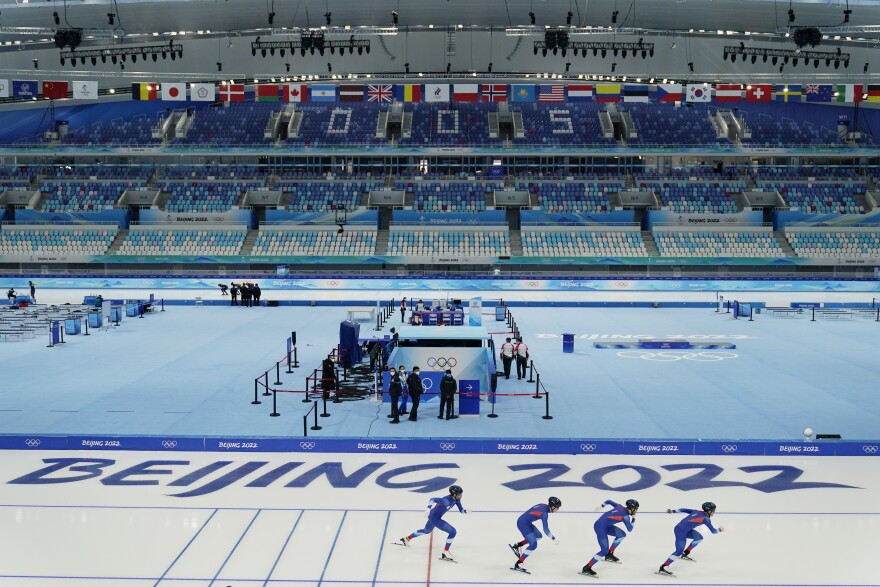The Beijing Olympics open at the end of this week, but the publicity battles are already well underway. The United States government is leading a diplomatic boycott of the games — but China’s government says leaders from 25 other countries will attend Friday’s opening ceremonies.
China’s government is eager to point to leaders who are coming to Beijing for the Olympics — like the presidents of Russia, Serbia and Poland.
From the Asia Pacific, many countries sending official delegations are not sending their top leader.
For example, while Cambodia is sending its King, Thailand is sending a princess.
Singapore is sending its president — less powerful than the Prime Minister — while South Korea is sending the Speaker of the National Assembly.
The United States’ diplomatic boycott of the games cites “ongoing genocide and crimes against humanity in Xinjiang” — as well as other human rights abuses in Hong Kong and Tibet.
Countries including the UK, Australia and Canada are joining the diplomatic boycott — while others such as Japan are not sending top government officials, but are stopping short of calling it a boycott.
Many companies are also attempting some sort of balancing act — eager to reach China’s market and maintain good relations with China’s government, but anxious to avoid bad publicity in the United States and elsewhere.
These include advertisers that are “global corporate partners” for the Olympics: American companies Airbnb, Coca-Cola, Intel, Procter and Gamble, and Visa.
Japanese companies on that list include Bridgestone, Panasonic and Toyota — as well as South Korea’s Samsung.




